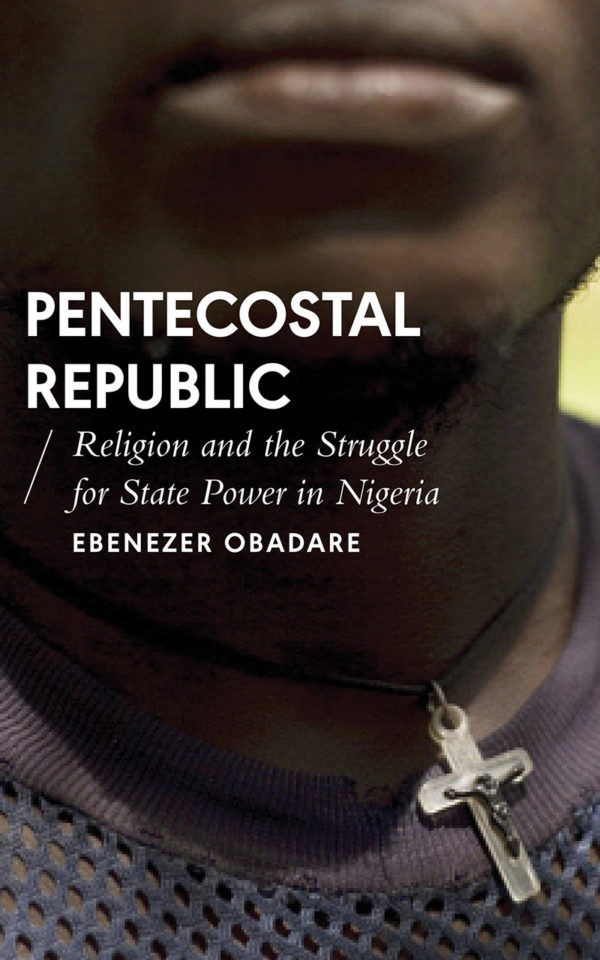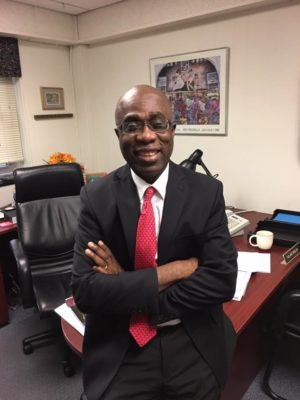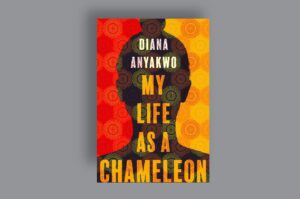
Often when one thinks of African writing, it is often about fiction. African fiction is widely celebrated globally, with the traffic enabled by highly publicized Western prizes, forums, workshops, residencies, etc. One can then be forgiven for thinking that all Africans write is fiction and the occasional poem. The truth is that there is an equally impressive body of work in nonfiction, social discourse and history. In defense of the average reader, much of that work is buried inside near-impenetrable academic literary vaults. Once the reader manages to lay eyes on the prize, the eyes glaze over, impressed only be the denseness of the prose and its proud insistence on being unreadable.
Professor Ebenezer Obadare’s new book, Pentecostal Republic: Religion and the Struggle for State Power in Nigeria tries very hard to break that tradition of unreadability and opacity and mostly succeeds. There are many reasons why you should read this book. It is perhaps the most comprehensive compilation of notes, references and resources about Pentecostal Christianity in Nigeria, and Nigerian history, period. Almost a quarter of the book is devoted to notes, references and a robust index. Obadare’s industry is impressive and it shows. It is a disciplined, almost clinical study of the gentrification of what passes for politics in Nigeria by pastors, most of whom he situates in the Southwest of Nigeria.
Obadare’s book offers the reader a pleasant side benefit: it also doubles as a reliable documentation of the tortured history of contemporary Nigerian politics, especially since 1999 when Mr. Olusegun Obasanjo came literally from death row to ascend the presidency. It takes a special skill to write about Nigeria’s political scene without sneering and dissolving into a frothing raging Afropessimist, but Obadare goes high and stays on topic. The result is a mostly readable volume that manages to be respectful and insightful. As an aside, I would highly recommend this as a text in any tertiary institution in the world. It is gently groundbreaking.
Obadare’s attempt at civil discourse is commendable precisely because there is no shortage of evidence that just like the state itself, much of today’s new Christianity comes across as a Stepin Fetchit comedy routine that has captivated millions of Nigerians who are fed daily sermons that riff off of terrifying binaries: of good and evil, light and darkness, with “evil principalities” roaming the land ready to pounce on a member of the congregation that has not paid appropriate tithes. Nigeria is in the grip of an era of superstition and pastors are jiving all the way to the bank.
Not even Aso Rock is spared, as Obadare reminds us of former press aide to ex-President Goodluck Jonathan, Reuben Abati’s essay on demons roaming Aso Rock and destroying private parts, lives and dreams. In the essay, The spiritual side of Aso Rock, Abati, a star journalist until he joined Jonathan’s hapless regime writes stuff like this:
I am ordinarily not a superstitious person, but working in the Villa, I eventually became convinced that there must be something supernatural about power and closeness to it. I’ll start with a personal testimony. I was given an apartment to live in inside the Villa. It was furnished and equipped. But when my son, Michael arrived, one of my brothers came with a pastor who was supposed to stay in the apartment. But the man refused claiming that the Villa was full of evil spirits and that there would soon be a fire accident in the apartment. He complained about too much human sacrifice around the Villa and advised that my family must never sleep overnight inside the Villa.
I thought the man was talking nonsense and he wanted the luxury of a hotel accommodation. But he turned out to be right. The day I hosted family friends in that apartment and they slept overnight, there was indeed a fire accident. The guests escaped and they were so thankful. Not long after, the President’s physician living two compounds away had a fire accident in his home. He and his children could have died. He escaped with bruises. Around the Villa while I was there, someone always died or their relations died. I can confirm that every principal officer suffered one tragedy or the other; it was as if you needed to sacrifice something to remain on duty inside that environment. Even some of the women became merchants of dildo because they had suffered a special kind of death in their homes (I am sorry to reveal this) and many of the men complained about something that had died below their waists too. The ones who did not have such misfortune had one ailment or the other that they had to nurse. From cancer to brain and prostate surgery and whatever, the Villa was a hospital full of agonizing patients.
Obadare makes the amusing case that today’s Pentecostal pastors are the new marabouts, the new “native doctors” divining at the highest levels of government access for power and fortune. His book also sheds a light on the evolution of the Nigerian church from mere houses of worship to fully functioning communities offering welfare resources to congregants. They have rushed in to fill the vacuum created by generations of thieving rulers. The result has not always been positive. Much of the farce resulting from the new diabolical space is roundly dismissed in this hilarious passage featuring Abimbola Adelakun:
To be sure, not everyone found Abati’s claims regarding roaming demons and ‘persons in the Villa walking upside down, head to the ground’ convincing. For Punch columnist Abimbola Adelakun, the article amounted to nothing more than an attempt on Abati’s part to ‘pass off incompetence (his and his former boss’s) as metaphysically induced “mistakes”’. And to Abati’s claim that ‘when presidents make mistakes, they are probably victims of a force higher than what we can imagine’, Adelakun responded with a blizzard of questions: What unimaginable higher forces could have been responsible for the massive looting carried out by human – superhuman – agents right under President Goodluck Jonathan’s nose? To what extent were evil spirits responsible for the profligacy of the very corrupt government Abati worked with? Did those evil spirits also join their company to indulge in the bacchanal feasts through which they frittered valuable public resources? What supernatural power could account for Jonathan’s lethargy that caused the security issues that plagued the country under his watch to greatly deteriorate?
Yes, find this book and read it. It is worth the hefty price tag. Yes, it is an expensive book and that unfortunately is a real problem with academia. Their words of wisdom do not come cheap. In that respect they are like Nigeria’s pastors, always in your pockets.
********
Buy Pentecostal Republic | University of Chicago Press | Amazon
********
About the Author:
 Ikhide R. Ikheloa or Pa Ikhide is a social and literary critic who writes non-stop on various online media. He was a columnist with Next Newspaper and the Daily Times, Nigeria, where he held forth and offered unsolicited opinions on any and everything to do with literature and the world. He has been published in books, journals and online magazines and he predicts: ‘The book and the library are dying. Ideas live.” Find him on twitter @ikhide
Ikhide R. Ikheloa or Pa Ikhide is a social and literary critic who writes non-stop on various online media. He was a columnist with Next Newspaper and the Daily Times, Nigeria, where he held forth and offered unsolicited opinions on any and everything to do with literature and the world. He has been published in books, journals and online magazines and he predicts: ‘The book and the library are dying. Ideas live.” Find him on twitter @ikhide









COMMENTS -
Reader Interactions